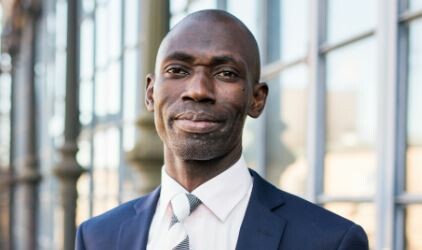The second pre-election domestic observation report released by the Community Empowerment for Progress Organization (CEPO) has revealed that divergent views by the principal signatories to the 2018 revitalized peace agreement are causing fear among sections of the population with people fearing a resurgence of violence.
According to the report, a reasonable size of the population in the country wants the elections conducted on schedule but democratically and peacefully.
“Growing of political attitudes towards fueling political frictions among the political actors is growing so fast in the recent days, especially around the opinion on holding elections by December 2024,” the report reads in part. “The political dilemma on holding elections by December 2024 or not is nurturing fear of a return to violence among the signatories to the revitalized peace agreement.”
“An urgent action on holding inclusive political dialogue in March 2024 for making important political decisions and consensus on the fate of the looming elections is essential,” the report recommended.
According to CEPO, citizens are highly interested in participating in the elections but want peaceful, democratic, free, fair, and violent-free polls in December 2024.
One of the key findings in the report is that the majority of the citizens are convinced that the current political class in power is afraid of holding democratic and peaceful elections and would like to stay in power through the extension of the transitional period.
“The rise in clashing political messaging on the election matters in the last weeks is increasing public mistrust and loss of confidence in the conduct of democratic and peaceful elections and this is convincing a reasonable size of the public that the chances of the country returning to another deadly round of violence is high,” the report stated. “It is making the restriction of civic and political space rise by the government security authorities in fear of possible break out of violent confrontation among political actors and delaying political leadership decisions on the fate of the elections in terms of the type of election, the system of elections and (lack of) a final election timeline and calendar is making voter education harder.”
CEPO also revealed that the rise in politically motivated armed violence among communities across the country is making the public apprehensive and doubtful that elections will happen.
“Elections at the state level for the gubernatorial and state parliamentary seats are likely to be highly contested. If democratic standards are not upheld, the chance of the state elections turning violent is eminent,” CEPO observed. “The growing cuts in global donor funding are posing a threat to the viability of the media and civil society in the face of the looming elections.”
CEPO says that the above findings of their pre-election observation are telling and demand that the political leadership in the country seriously prioritize holding an inclusive political dialogue to resolve some of the conflicting positions and messages from the parties regarding the elections.
“The political clouds that sparked violence in 2016, it seems are in the making so fast, and this has created panic among some citizens who think the country can return to violence,” the report warned. “There must be an immediate inclusive political dialogue to make political decisions and reach consensus on the fate of the December 2024 elections and other outstanding concerns.”
CEPO also urged the government to fund the institutions entrusted with the creation of a conducive environment for the conduct of democratic and peaceful elections and open up civic and political space for all actors.
“South Sudan is in a very sensitive political moment that requires pro-active political leadership in resolving factors that raise political discontent, and mistrust and motivate political actors and others to engage in the use of language that fuels a return to violence as the best option for mitigating political misunderstanding,” CEPO concluded.




